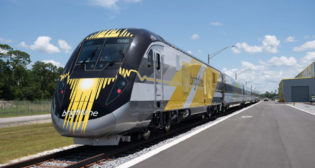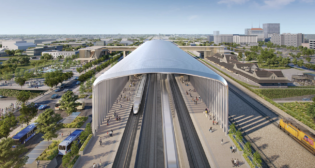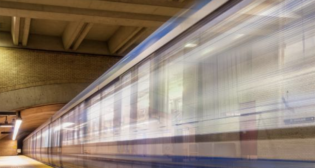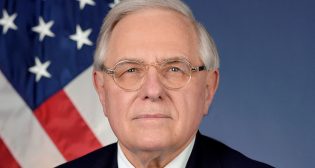
Amtrak to FRA: Lightweight HSR trains, please
Written by Douglas John BowenAmtrak begins the new year by formally planning to request revisions to Federal Railroad Administration safety standards to facilitate lighter-weight high speed rail equipment, a move U.S. rail advocates have sought for at least two decades.
Amtrak seeks the adjustment to better plan for new HSR equipment to replace the heavier Acela Express gear now traversing the Northeast Corridor, according to Amtrak President and CEO Joseph Boardman.
U.S. crashworthiness standards currently include reliance on heavier rail equipment compared with European or Asian counterparts, which lower top speed potential and energy efficiency. The U.S. approach is weighted toward crash survivability, as opposed to simply crash avoidance, as in other locales.
FRA and some other safety experts have favored this approach in part because many Amtrak trains use freight railroad rights-of-way over all of much of their routes.
Critics note the emphasis came about in part due to a mirror-image incident in January 1987, in which Amtrak’s Colonial slammed into a freight train that had violated signal indicators on the Northeast Corridor, owned by Amtrak and not a freight railroad. The collision killed 16. But subsequent incidents, including an Amtrak wreck at Big Bayou Canot near Mobile, Ala., in September 1993, reinforced FRA’s position.
Amtrak last month revamped its vision for HSR equipment purchases, saying it will seek to replace its Acela Express trainsets with newer equipment capable of speeds of at least 160 mph, in keeping with work beginning this year in New Jersey to increase speeds on the NEC. Cost would be between $30 million to $40 million per trainset, Boardman said, adding, “It depends on how many we actually would purchase and whether anybody else in this country is going to move forward with high speed trainsets.”
FRA is actively coordinating development of safety standards for HSR trains at speeds greater than 150 mph, in consultation with Amtrak and numerous other parties, including the American Public Transportation Association.



